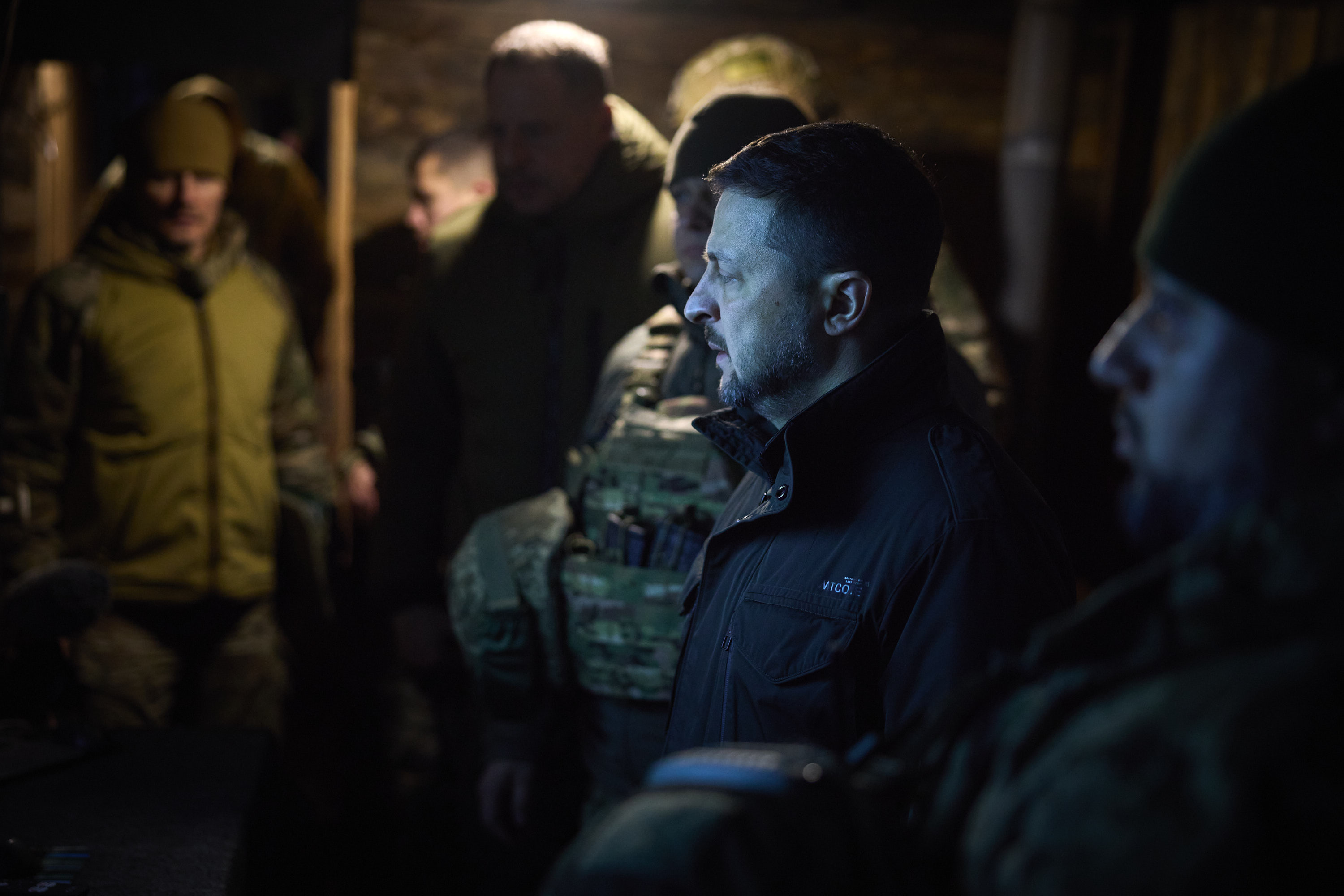Allies Lift Ukraine Weapon Restrictions Amid Trump's Putin Outburst
Western nations allow deep strikes into Russia as Trump vows to end war quickly, escalating global tensions.

NEW YORK -- In a bold escalation of Western support for Ukraine, allies including Germany, the United States, the United Kingdom, and France have lifted restrictions on long-range weapons, allowing strikes deep into Russian territory. This move comes amid heightened rhetoric from U.S. President Donald Trump, who recently erupted in criticism of Russian President Vladimir Putin on a tarmac, vowing to end the war in Ukraine within 24 hours. Trump's outburst, captured in viral footage, underscores a growing impatience in Washington, even as his administration navigates complex diplomatic waters. The policy shift, announced by German Chancellor Friedrich Merz on May 26, 2025, marks a pivotal moment in the conflict, potentially empowering Kyiv to target Russian military assets far beyond the front lines. Yet, Trump's promises of a quick resolution clash with the reality of ongoing violence, highlighting the stark contrasts in approaches between rhetoric and action.
As Trump's verbal assault on Putin gained traction, with the president labeling him "absolutely crazy" in response to recent Russian drone and missile attacks on Ukraine, questions swirl about the feasibility of his 24-hour war-ending pledge. Made during a high-profile airport encounter, Trump's statement echoed his campaign trail bravado, promising swift negotiations to halt the bloodshed. However, sources close to the administration indicate no concrete plan has emerged, leaving allies to press forward with military aid. This development exposes the tensions within NATO, where Trump's unpredictable style contrasts with the measured strategies of European partners. The lifting of weapon restrictions thus serves as both a counterpoint and a complication to Trump's diplomacy, potentially forcing his hand in the conflict he claims to master.
The decision to remove geographic limits on Ukraine's use of advanced weaponry stems from mounting pressure on Western leaders, with Chancellor Merz declaring the change on May 26, 2025. Previously, systems like the Taurus KEPD 350 from Germany and Storm Shadow missiles from the UK and France were confined to defensive operations near Ukraine's borders. Now, these tools can target military installations inside Russia, a shift aimed at disrupting Moscow's supply chains and command structures. This policy reversal reflects a consensus among allies that Russia's intensified assaults warrant a stronger response, though it risks drawing NATO deeper into the fray. Officials in Berlin and Washington emphasize the move's defensive intent, yet the implications ripple across the Atlantic.
Key weapons now unleashed include Germany's Taurus KEPD 350 cruise missiles, with a range up to 500 kilometers, designed for precision strikes on fortified targets. The UK and France's Storm Shadow and SCALP EG missiles, reaching over 250 kilometers, offer similar capabilities for hitting high-value assets. U.S.-supplied ATACMS, with ranges up to 300 kilometers, and extended HIMARS munitions, extending to 150 kilometers or more, round out this arsenal. These systems, once restricted, now enable Ukraine to strike Russian airfields, logistics hubs, and energy infrastructure in regions like Belgorod and Rostov. The precision of these weapons could shift battlefield dynamics, allowing Kyiv to retaliate against attacks that have devastated its cities.
Ukraine's military planners are likely focusing on high-priority targets within Russia, such as command centers in Voronezh and airbases in Kursk, to degrade Moscow's operational edge. This capability could interrupt Russian logistics supporting advances in the Donbas, potentially saving Ukrainian lives and territory. Yet, the strategy carries inherent dangers, as strikes might inadvertently hit civilian areas, inviting international scrutiny. Analysts note that Kyiv's restraint in targeting will be crucial, balancing military gains with the need to maintain global support. The policy change thus amplifies Ukraine's leverage, but at a cost that could escalate the conflict's human toll.
Russia's response to these developments has been swift and defiant, with Kremlin officials warning of severe retaliation against any deep strikes. Putin's government views the lifted restrictions as a direct provocation, potentially justifying cyberattacks or expanded military actions. This comes as Trump's outburst adds fuel to the fire, with his public criticism of Putin contrasting sharply with his earlier calls for negotiation. The juxtaposition highlights a volatile diplomatic landscape, where Trump's 24-hour promise now seems at odds with the hardening stances of both sides. Moscow's state media has already amplified the narrative of Western aggression, seeking to rally domestic support amid growing losses.
The risks of broader escalation loom large, as strikes inside Russia could trigger a cycle of reprisals that draws in NATO members. Trump's administration faces particular scrutiny, with his bold claims now tested against the possibility of direct confrontation. European allies worry that unchecked Ukrainian actions might provoke Russian hybrid warfare, including sabotage or energy disruptions. Despite these dangers, supporters argue the move is necessary to force Putin to the table, perhaps fulfilling Trump's vision of a rapid resolution. The uncertainty underscores the high stakes involved, where miscalculations could redefine global security.
For the United States, this policy shift intensifies debates over military aid and fiscal commitments, with Trump's promises colliding with congressional realities. American taxpayers have already funded billions in support, and lifting restrictions could demand even more resources. Meanwhile, Trump's tarmac tirade against Putin resonates with his base, portraying him as a decisive leader, even as critics question the substance behind his words. The interplay between domestic politics and international strategy reveals the complexities of U.S. involvement, where rhetoric must align with action to avoid alienating allies or emboldening adversaries.
Looking ahead, the convergence of Trump's inflammatory statements and the allies' strategic decisions leaves the war's outcome in flux. While Kyiv gains a powerful edge, the path to peace remains elusive, with Trump's 24-hour boast serving as a reminder of diplomacy's limits. Observers caution that without coordinated efforts, escalation could overshadow any quick fixes, prolonging suffering for millions. The world watches as these developments unfold, hoping for a resolution that balances deterrence with dialogue.
